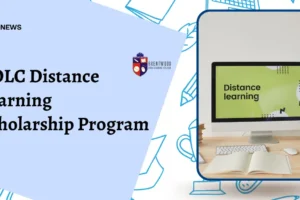When applying for scholarships, obtaining a compelling Letter of Recommendation for Scholarship is important. Scholarships are small amounts of money given to students who meet certain requirements. They are meant to help them pay for their higher education. Scholarships can be given by schools and nonprofits based on academic performance, financial need, or a mix of the two.
Table of Contents
Some scholarships require students to apply in order for the committee to consider their application. The application may need a letter of reference from a teacher or mentor. This piece talks about what a scholarship recommendation letter is and how to write one. It also gives you a template and an example letter to help you.
What is a letter of recommendation for a scholarship?
A scholarship recommendation letter is a document composed by a trusted instructor, advisor, or mentor to demonstrate your suitability as a recipient of an award.
The specific substance of these letters may vary depending on the type of award, but they all emphasize the abilities and attributes that fulfill the criteria for the scholarship. Furthermore, a reference letter not only outlines the candidate’s skills but also provides concrete illustrations of their past accomplishments.
How to write a letter of recommendation for a scholarship?
Below mentioned is how to write a letter of approval for a student who wants a scholarship:
Check out the requirements for the grant.
1. Review the scholarship requirements
Different types of applicants may be offered more chances to win different scholarships. An academic or merit award, for example, might put a lot of value on intellectual rigor and success.
When writing a reference letter for this type of scholarship, a mentor may talk about the applicant’s academic achievements and specific examples that show how dedicated they are to their studies.
However, the athletic scholarship review group may be interested in a candidate because of how physically strong they are and how much they care about their team.
2. Start with an introductory statement
Putting an introduction piece at the beginning of your letter can help the review committee understand what your letter is about and what your goals are. In this paragraph, you can talk about the student, the grant, and how you work with them.
You can also say the name of the school where you met the student and share some more information about your past there if you know them. In this case, you could say that you have been a teacher for six years at a certain school and have been teaching math to 10th graders.
You could also give more information about the applicant in this line, like where they went to school or a list of the traits that make them a good candidate for the award. It can also help to use positive language that shows how happy you are to promote this kid. This could create a real sense of excitement, which would make the review group more zealous.
3. Characterize the candidate in terms of the scholarship
After you introduce the individual, you can talk about why you think they would be a good fit for the scholarship and what makes them stand out. This is a very important step because it could show the scholarship committee that you know what kind of application they want and that you have given a lot of thought to why the student you are writing for might meet their requirements.
It might help if you used specific examples of things you’ve done or events that happened to support your suggestion. One powerful way to show that a candidate can live up to their views and ideals is to talk about the things they have done well in the past.
4. Make a list of more achievements, traits, or skills
You might think that the group needs to know more about this person’s achievements, traits, or skills to fully understand them. After you’ve talked about the ones that meet the scholarship standards, you can move on to these other great qualities.
You could make a list of things like awards, sports stats, or grade point rates that show what you’ve done. It might also help if you can show how these fit with the scholarship standards.
You could also talk about the student’s personality traits that you noticed while you were their teacher or when you had other contact with them. These are helpful to include because they help the reviewing group learn more about the candidate’s character and why they might be a good choice for the scholarship.
5. The conclusion
In the end, you can say again how much you support the applicant and quickly explain why the scholarship committee should give them a chance. Then you can ask the committee members to get in touch with you if they want to talk about the matter further.
It might help the committee to know that you are ready to help the candidate in some situations, especially if they don’t know much about the candidate or there is a lot of competition.
6. Proofread very carefully
When you are done writing your message, you can carefully read it again to find any typing, grammar, or reading mistakes. Always remember that you are the student’s voice to the review group because they chose you to recommend them.
For this reason, the quality of your letter might affect how the group judges the candidate. Because of this, it’s very important to make sure that the end draft is perfect. This is helpful because it’s sometimes easier for someone else to find small spelling or grammar problems.
They may also tell you how well you wrote your letter and point out any places that need work. It can help you a lot if this is your first time writing a letter of recommendation for a grant. If you ask a friend or neighbor for help, you might want to keep their name secret for a little while to respect their right to privacy.
7. Send it adequately on time
Some teachers write letters of mention for a lot of their students. Making and following a plan or schedule can help you remember when things are due and how they want you to send your advice. By following these rules and making these dates, you can help make sure that the review group takes your letter into account along with the rest of the candidate’s application materials.
Format of Letter of Recommendation for Scholarship
The below-mentioned format is based on our example of a letter of recommendation. Make sure to change your name and other details as per your needs and requirements.
Dear Scholarship Committee,
Paragraph 1. “Introduction”:
- Explain why you’re writing the letter: to suggest Michael Johnson for the Anderson Scholars Scholarship.
- Explain how the author knows Michael Johnson: they worked together as academic advisors and the author taught Johnson physics in the past.
Paragraph 2. “Description of Michael’s Qualities”:
- Stress Michael’s desire to learn and ability to put thoughts into action well.
- Stress the qualities that Crestwood University looks for in applicants for the Anderson Scholarship: commitment to studies and interest in the community.
Paragraph 3. Michael’s Accomplishments:
- Note that Michael was the team captain of the school’s robotics team for three years and led the team to wins.
- Talk about Michael’s role in starting Students for STEM, a group whose goal is to improve STEM teaching in Crestwood School District schools.
Paragraph 4. Academic Performance and Leadership Skills:
- Recognize Michael’s consistently high grades and his ability to get his friends to work together as a teacher and an advisor.
- Michael’s leadership and teamwork skills are shown by the fact that he affected people outside of the writer’s class.
Paragraph 5. Summary and Recommendation:
- Explain why the writer thinks Michael should get the Anderson Scholars Scholarship based on his drive, leadership, and academic success.
- Suggest that the grant will help Michael with his future schoolwork and help him do even better.
- Let people know you’re available for more questions or conversations about Michael’s skills.
Sincerely,
[Your name]Example of letter of recommendation for scholarship
Sarah Smith
Los Angeles, California
(555) 123-4567
sarah.smith@email.com
March 9, 2024
Anderson Scholars Committee
Crestwood University
Crestwood, Oregon
Dear Scholarship Committee,
I am happy to write this letter to suggest Michael Johnson for the Anderson Scholars Scholarship. Michael and I have worked together for six months as an academic advisor. Before that, I taught him physics. He is an amazing young man who is eager to learn and naturally knows how to put his ideas into action. He seems like a great choice for this job, in my opinion.
Crestwood University has traditionally given the Anderson Scholarship to students who are very dedicated to both their studies and being stars in their communities. Michael has shown that he has both traits. Michael has been team captain of the school’s robotics team for three years and has led them to win each year. Many of his peers might have been happy, but Michael was more concerned with the lack of tools he had seen in his first year. He joined the founding members of Students for STEM, a group that worked to improve STEM education in Crestwood School district schools.
Michael is another student who works hard and has always gotten first-class grades. When I was his teacher, I noticed that he had a special knack for getting his classmates to work together before tests or big projects. As his present adviser, I’ve seen this same tendency toward working together, getting along, and supporting each other outside of my class. Because of these traits, he has done so much in the short time since moving to Crestwood.
So, it’s an honor for me to support and suggest Michael Johnson as a good candidate for the Anderson Scholars Scholarship. I think he deserves this award because he is a highly motivated and effective leader and student. He may use this scholarship to continue a career in academia marked by dedication and success. Please don’t hesitate to contact me via phone or email if you require any further clarification or have additional questions.
Sincerely,
Sarah Smith
FAQs
1. Is it acceptable for a friend to compose a letter of recommendation for a scholarship application?
Yes, a friend can write a letter of recommendation for a scholarship, especially if the scholarship program specifically requests letters from personal acquaintances who can speak to the applicant’s character more intimately.
2. How do I write a good letter for a scholarship?
When writing a scholarship cover letter, it’s important to convey to the review committee why you are the best candidate for the scholarship and how receiving the award would benefit your studies. A well-crafted letter should include a thoughtful introduction, body paragraphs highlighting your academic and extracurricular achievements, and a confident conclusion.
3. What are the key components of a well-crafted letter of recommendation?
To write an effective letter of recommendation, consider offering specific examples of the candidate’s skills or qualifications that align with the role or scholarship. Include a personal anecdote about your experience working with the candidate and highlight any workplace or people skills you have observed. In closing, provide an overview of why you would recommend the person for the opportunity.
4. Can anyone give a letter of recommendation?
Yes, anyone who knows the applicant well and can speak to their qualifications, skills, and character can provide a letter of recommendation. This could include teachers, coaches, mentors, members of your faith community, employers, or individuals with whom you have volunteered.
It’s advisable to ask someone who has known you for a significant period or who has observed your dedication and hard work in school, jobs, or extracurricular activities.
Conclusion
Creating an attractive letter of recommendation for a scholarship is a crucial component of endorsing a student’s ambitions. The letter effectively presents the candidate’s accomplishments, characteristics, and appropriateness for the award, making it a compelling endorsement.
Thorough proofreading guarantees clear and professional writing, which improves the effectiveness of the recommendation. Demonstrating a willingness to provide more support and exhibiting a readiness to answer any questions highlights your dedication to the candidate’s success.












Add Comment